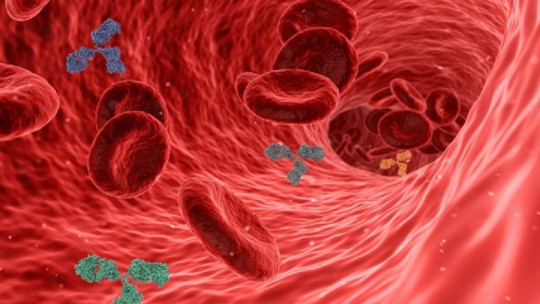
During pregnancy, all kinds of changes occur in a woman’s body, including an increase in blood volume to meet the needs for the development and nutrition of the fetus.
It is due to this increase that certain typical pregnancy discomforts may occur, such as fainting, hemorrhoids, headache, generalized fatigue, and also palpitations and tachycardia.
Next we will talk about tachycardia during pregnancy, what causes it, when it usually appears and what causes it
Why does tachycardia appear during pregnancy?
During pregnancy, a woman’s body goes through several changes. In addition to an increase in weight and a change in body silhouette, blood volume increases to efficiently nourish the fetus, which is in full formation and development.
There may be an increase of up to 50% more blood, which means the heart must pump harder to be able to work with this extra amount of blood. As a result, palpitations are common.
Tachycardia associated with pregnancy usually occurs at the beginning of pregnancy, in the first trimester, being more pronounced in the second and there may be peaks of great discomfort between weeks 28 and 32. The heart has to work harder and harder because the fetus is constantly developing As the fetus is more formed and larger, the more effort the maternal heart has to make, thus increasing the heart rate.
Added to all this, as the uterus grows, the mother’s organs such as the lungs and the heart itself have less space. In fact, while she is pregnant, the mother’s heart moves a little to the left. This displacement is important, since it can slightly alter the functioning of the cardiac organ, a factor that can aggravate tachycardia.
Factors that predispose to tachycardia
Factors that can predispose to the appearance of palpitations during pregnancy include stress, anxiety, exertion, and leading an inappropriate lifestyle. All of this can cause the woman to suffer from tachycardia during pregnancy, although, of course, these are factors that can also trigger palpitations in people who are not pregnant. However, taking into account the physical changes that women present while pregnant, the appearance of these factors triggers tachycardia even more.
Although palpitations and tachycardia are normal physiological symptoms during pregnancy, they should not be underestimated. They may be an indication that the heart has problems, which could well be associated with cardiovascular disease. If they occur very frequently or appear very intensely, it may be an alarm signal. Although most pregnancy arrhythmias are benign, you should go to the doctor to rule out any problem that endangers the lives of both of you.
It is common for pregnant women to have tachycardia when lying on their backs This tachycardia is due to supine hypotension, a situation that occurs when, when lying down, the uterus compresses the vena cava, which is responsible for carrying blood to the heart. Thus, the heart has less blood to pump, which decreases blood pressure, increases heart rate and generates a feeling of discomfort, usually tachycardia, dizziness and palpitations.
Other factors that can trigger tachycardia during pregnancy are, in fact, factors that can also trigger tachycardia in people who are not pregnant. Among them we find having done a high-intensity sport (not recommended during pregnancy), having taken medications whose side effect is palpitations, consuming foods and drinks with methylxanthines (coffee, tea, mate, chocolate…) and some endocrinological alterations. as is hyperthyroidism.
What can be done?
As we said, tachycardia associated with pregnancy can appear in any of the three trimesters into which it is divided. Each woman and each pregnancy is different, so not all of them have to present this symptom or even constantly. Palpitations can appear when you make a little effort or even while lying on your back. Sometimes the best thing to do is try to relax and breathe deeply until they pass.
As preventive measures, the main one is to avoid gaining too much weight It is clear that saying this is easier than doing it, but the effort must be made. Whether due to binge eating or stress eating, it is common for pregnant women to gain a few extra kilos. As we said, since the fetus is in full development, it should not be deprived of anything, however, food should not be abused either. When you gain weight you acquire visceral fat, which oppresses the organs and makes it difficult for the heart to work.
This is why it is essential to heed the doctor’s advice and go to a nutritionist specialized in pregnancy. This professional will propose a diet that does not lack nutrients necessary for the development of the fetus but will try to prevent the woman from gaining weight. Besides, moderate exercise is recommended To avoid the effect of stress, it is ideal to practice relaxation techniques, get enough rest, sleep on your side, and try to lead a quiet life as best you can.
Treatment
As we said, Going to a professional during pregnancy is essential to prevent any medical problem that appears from getting worse Tachycardia, although it may be mild, if not evaluated and controlled could be indicative of a serious problem that requires intervention. Some cardiac or hormonal pathologies, such as hyperthyroidism, could explain the appearance of tachycardia in pregnant women, and it would be necessary to prescribe drugs that reduce heart rate.
If the tachycardia is associated with a drug that has been prescribed to the pregnant woman, an attempt is made to find a substitute drug and see if its administration does not cause this side effect or its side effects are less serious. Whatever may explain it, whether postural, pharmacological, hormonal or cardiac, it is very important to visit the primary obstetrician and any other professional who can improve the quality of life of the pregnant woman during the process.








